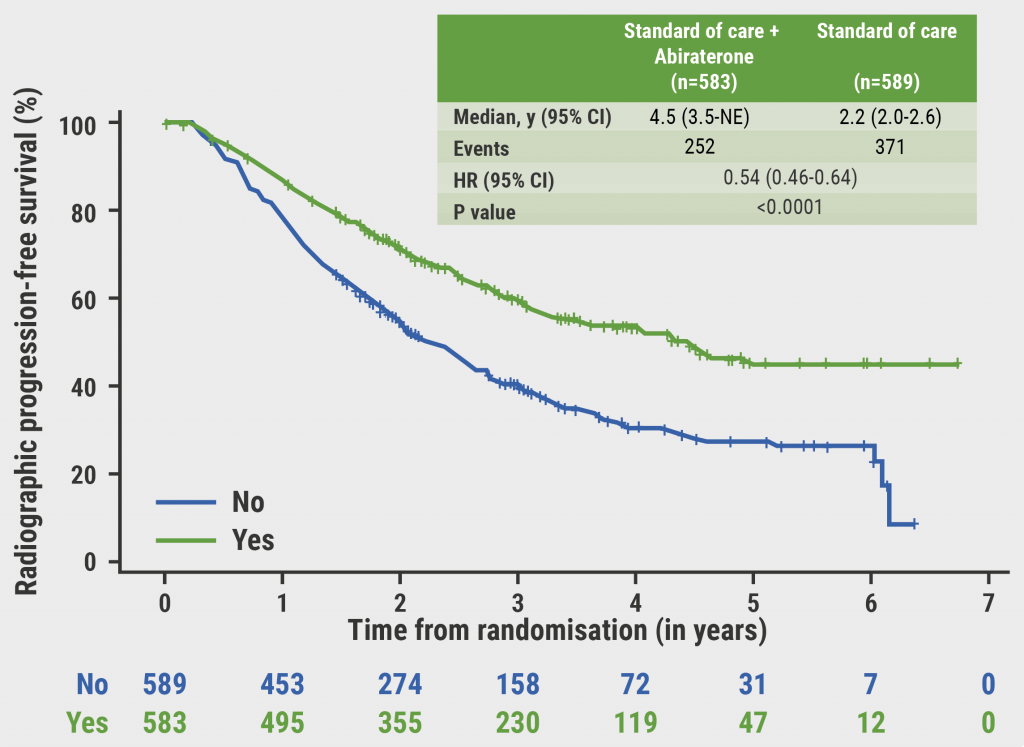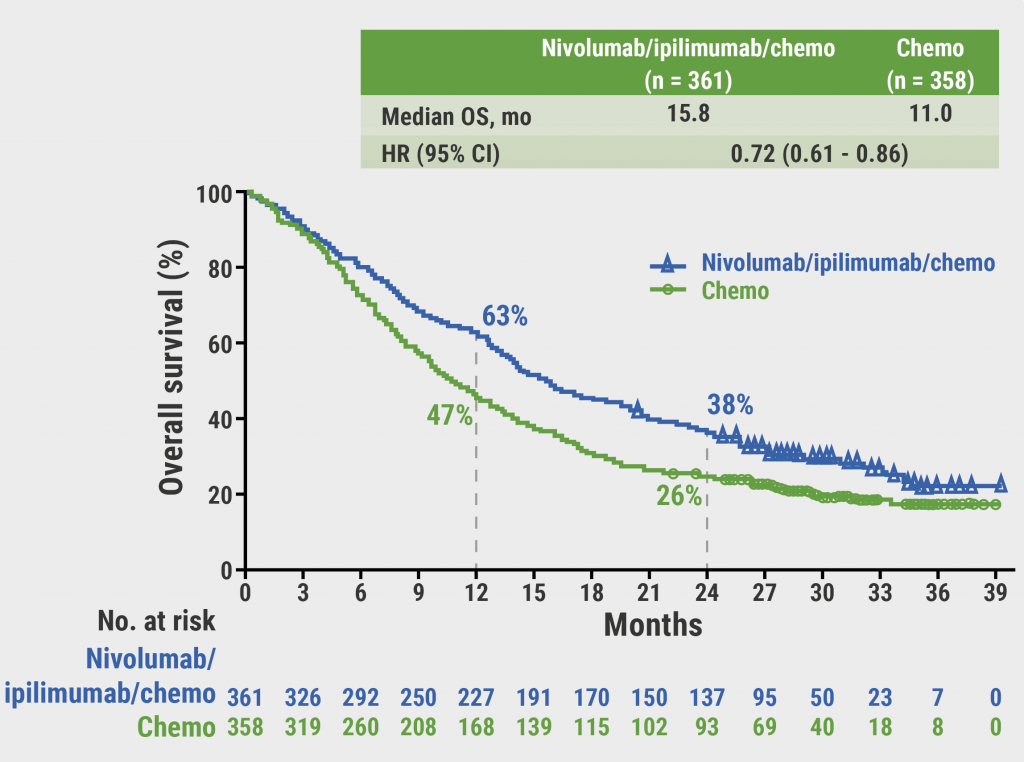Patients with HER2-positive metastatic breast cancer are at high risk of developing brain metastases, and treatment options are limited once brain metastases occur [1]. T-DXd is an antibody-drug conjugate composed of an anti-HER2 antibody, a cleavable tetrapeptide-based linker, and a topoisomerase I inhibitor payload [2].
In the ongoing, phase 2 DESTINY-Breast01 trial (NCT03248492), 184 patients with HER2-positive metastatic breast cancer were enrolled, of whom 24 had a history of brain metastases (17 had brain lesions at baseline). Patients received T-DXd at 5.4 mg/kg every 3 weeks. Overall, T-DXd showed durable anti-tumour activity, and these results led to the approval of T-DXd for the treatment of adult patients with HER2-positive, unresectable or metastatic breast cancer who received 2 or more prior anti-HER2-based regimens (USA and Europe) or had prior chemotherapy and are refractory to or intolerant of standard treatments (Japan) [3].
Prof. Guy Jerusalem (CHU Liège, Belgium) presented the results of a subgroups analysis of the 24 patients with baseline brain metastases [4]. Brain lesions were monitored by MRI or CT every 6 weeks. In these patients, the objective response rate was 58.3% versus 60.9% in all 184 patients treated with T-DXd. Median duration of response was 16.9 months versus 14.8 months in all patients. Median progression-free survival was 18.1 months in the patients with baseline brain metastases versus 16.4 months in all patients. For 15 of the 17 patients who had brain metastases at baseline, data was available to evaluate responses in the brain. Seven patients experienced tumour shrinkage consistent with a partial response in the brain, 7 had stable disease, and 1 had disease progression as the best response.
Based on these results, it was concluded that T-DXd shows a durable systemic disease control in patients with stable treated brain metastases at baseline, with clinical outcomes similar to those of the overall population.
- Hurvitz SA, et al. Clin Cancer Res. 2019;25:2433-2441.
- Ogitani Y, et al. Cancer Sci. 2016;107:1039-1046.
- Modi S, et al. N Engl J Med. 2020;382:610-621.
- Jerusalem GHM, et al. Trastuzumab deruxtecan (T-DXd) in patients with HER2+ metastatic breast cancer with brain metastases: A subgroup analysis of the DESTINY-Breast01 trial. Abstract 526, ASCO 2021 Virtual Meeting, 4–8 June.
Copyright ©2021 Medicom Medical Publishers
Posted on
Previous Article
« Benefit of I-O/chemo combo over chemotherapy alone in advanced GC/GEJC/EAC Next Article
Patritumab deruxtecan (HER3-DXd) in EGFR TKI-resistant NSCLC »
« Benefit of I-O/chemo combo over chemotherapy alone in advanced GC/GEJC/EAC Next Article
Patritumab deruxtecan (HER3-DXd) in EGFR TKI-resistant NSCLC »
Table of Contents: ASCO 2021
Featured articles
Downloadable 1-Page Editor-Selected Trial PowerPoint Slides
Breast Cancer
Excellent prognosis for breast cancer patients with ultra-low-risk gene signature
Olaparib benefits early breast cancer patients with BRCA1/2 germline mutation
Platinum-based adjuvant chemotherapy in TNBC is not superior or non-inferior to capecitabine
Dalpiciclib benefits patients with HR-positive, HER2-negative advanced breast cancer
Trastuzumab-deruxtecan showed clinical activity in patients with brain metastases
Lung Cancer
Neoadjuvant nivolumab plus chemotherapy improves surgical outcomes in NSCLC
Immune-related adverse events are associated with efficacy of atezolizumab in patients with advanced NSCLC
Sustained efficacy of nivolumab/ipilimumab plus 2 cycles of chemotherapy in NSCLC
Patritumab deruxtecan (HER3-DXd) in EGFR TKI-resistant NSCLC
Melanoma
Long-term results from ground-breaking melanoma trials
Novel dual checkpoint blockade improves progression-free survival in melanoma
Neoadjuvant therapy with nivolumab plus relatlimab is safe and effective in patients with stage III melanoma
Genitourinary Cancers
VISION trial shows improved survival with 177Lu-PSMA-617 in mCRPC
Abiraterone added to ADT + docetaxel nearly doubles survival in de novo mCSPC
Post-nephrectomy pembrolizumab improves disease-free survival
Glutaminase inhibitor telaglenastat does not improve survival mRCC
Promising efficacy and safety of feladilimab in recurrent/metastatic urothelial carcinoma
Gastrointestinal Cancers
Pembrolizumab benefits survival in MSI-H/dMMR metastastic colorectal cancer
Panitumumab added to 5-FU/LV effective as maintenance therapy in patients with mCRC
Trastuzumab-deruxtecan showed promising activity in patients with HER2-expressing mCRC
Benefit of both I-O/chemo combo and I-O/I-O combo over chemotherapy alone in oesophageal squamous cell cancer
Benefit of I-O/chemo combo over chemotherapy alone in advanced GC/GEJC/EAC
Perioperative chemotherapy and neoadjuvant multimodality therapy appear equally effective
Haematological Cancers
Olutasidenib demonstrates efficacy in patients with relapsed/refractory IDH1 mutant AML
Acalabrutinib as effective but better tolerated than ibrutinib in CLL
Gynaecological Cancers
Adjuvant chemotherapy does not improve outcome in patients with locally advanced cervical cancer
Novel drug combination for recurrent ovarian cancer
Dual HER2-blockade shows anti-tumour activity in patients with uterine cancer
Paediatric Cancer
Molecular tumour profiling impacts the diagnosis and treatment of solid tumours
Circulating tumour DNA to evaluate response in children with neuroblastoma
Basic Science
PARP7 inhibitor shows promising results in first-in-human trial
IACS-6274 is well tolerated and biologically active in selected advanced tumours
CYT-0851 shows promising anti-tumour activity across different tumour types
© 2024 Medicom Medical Publishers. All rights reserved. Terms and Conditions | Privacy Policy
HEAD OFFICE
Laarderhoogtweg 25
1101 EB Amsterdam
The Netherlands
T: +31 85 4012 560
E: publishers@medicom-publishers.com



